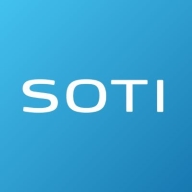


Both SOTI MobiControl and Google Cloud Identity compete in mobile device management and identity services. Users favor Google Cloud Identity for its features and overall experience, though SOTI MobiControl has strengths in specific areas.
Features: Users value SOTI MobiControl for remote control, software distribution, and location tracking. Google Cloud Identity is praised for its integration with G Suite, robust security, and simplified user provisioning. Google Cloud Identity provides an integrated, cloud-first experience, whereas SOTI MobiControl offers detailed device management.
Room for Improvement: SOTI MobiControl users seek better performance speed, a more intuitive management process, and enhanced usability. Google Cloud Identity users want improved documentation, advanced reporting, and richer analytics. SOTI MobiControl needs to streamline management tasks, while Google Cloud Identity should focus on documentation and analytics.
Ease of Deployment and Customer Service: SOTI MobiControl’s deployment is more complex, often requiring additional support, but its customer service is responsive. Google Cloud Identity is noted for straightforward deployment and efficient customer service, although some users desire better support resolution times.
Pricing and ROI: SOTI MobiControl is more expensive, with users finding higher costs challenging to justify. Google Cloud Identity is considered cost-effective, offering strong ROI through its scalable cloud infrastructure. Users feel Google Cloud Identity provides better value for money despite SOTI MobiControl's premium support costs.



Microsoft Intune provides centralized management of mobile devices and applications, ensuring security, compliance, and productivity through integration with Microsoft services like Microsoft 365 and Azure Active Directory.
Organizations use Intune for managing mobile devices and applications, enhancing security and compliance across platforms. With features like single sign-on, conditional access, and zero-touch deployment via Autopilot, it facilitates efficient operations. Intune's scalability, easy enrollment, and capabilities such as remote wipe support diverse device management, offering robust data protection and efficient operation. Despite its features, improvement areas include reporting, compatibility with non-Microsoft devices, and better support for macOS and Linux devices.
What are the key features of Microsoft Intune?
What benefits should users look for in reviews?
In industries such as finance, healthcare, and education, Microsoft Intune is implemented to ensure secure and compliant device management. Companies leverage its capabilities to deploy security policies and manage both corporate-owned and BYOD environments, facilitating a unified approach to data protection and compliance.
Cloud Identity is an Identity as a Service (IDaaS) and enterprise mobility management (EMM) product. It offers the identity services and endpoint administration that are available in G Suite as a stand-alone product. As an administrator, you can use Cloud Identity to manage your users, apps, and devices from a central location - the Google Admin console.
SOTI MobiControl, our award-winning mobility management solution provides the ability to securely manage mobile devices and connected peripherals, applications, content, and email. With MobiControl's advanced security and management features, businesses have granular control of how mobile devices are used for business, and how data is accessed to ensure sensitive corporate information is kept in authorized hands only.
We monitor all Enterprise Mobility Management (EMM) reviews to prevent fraudulent reviews and keep review quality high. We do not post reviews by company employees or direct competitors. We validate each review for authenticity via cross-reference with LinkedIn, and personal follow-up with the reviewer when necessary.